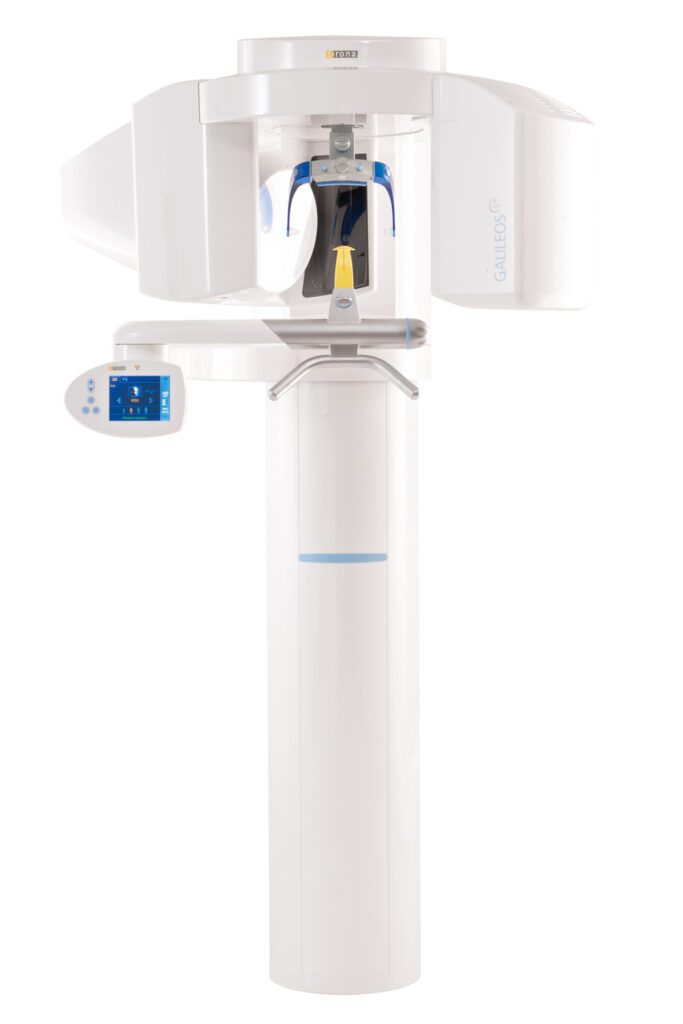Enhanced Dental Care
3-D imaging is created new possibilities in modern dentistry.
Dental Procedures
X-rays and medical CT scans are often a necessary step in preparing patients for dental procedures. In the past, numerous x-rays were required to develop a complete view of teeth. Fortunately, recent advancements in technology have allowed for a new, more streamlined approach.
What is the GALILEOS?
The GALILEOS 3-D CT scanner is an imaging unit that gives your dentist a detailed three-dimensional view of your teeth and jaws within a matter of seconds – much less time than it would take for you to receive a standard set of 18 X-rays. Harnessing the power of Cone Beam Computed Tomography (CBCT) technology, the 3-D scanner can take more than 200 high-definition images of your head and neck. A patient simply has to stand still for about 14 seconds while the scanner travels around his or her head.
Why You Might Need 3-D Imaging
Diagnosis – A 3-D GALILEOS scan offers detailed information not available through a conventional 2-D X-ray. This leads to more precision in diagnosis and treatment.
Guided Implants – Using 3-D imaging and its corresponding planning software, a dentist can thoroughly preplan dental implants. He or she can use the images to ensure accurate placement of implants during the surgical procedure which results in more precise, natural looking dental implants. This also decreases appointment duration.
Root Canal Therapy – 3-D views can help your dentist visualize teeth from every angle, which can result in more predictable and efficient root canal therapy.
Sleep Apnea Therapy – A GALILEOS scan shows soft tissues in addition to bones and teeth, allowing your dentist to evaluate your airways, nasal passages, and sinuses. This can assist with treatment of sleep apnea.
Benefits of the GALILEOS
Beyond its clinical advantages, the GALILEOS is a wonderful patient education tool. For the first time, patients can see their anatomy in accurate, real-life perspectives. This helps in achieving a better understanding of their own dental health. Additionally, the radiation dose is 100 times less than a traditional CT scanner.




